The trick-shots, underarm serves and tirades at spectators are all part of the theatre, and the 'what will he do next?' lure puts bums on seats, in much the same way John Daly still draws a crowd in golf.
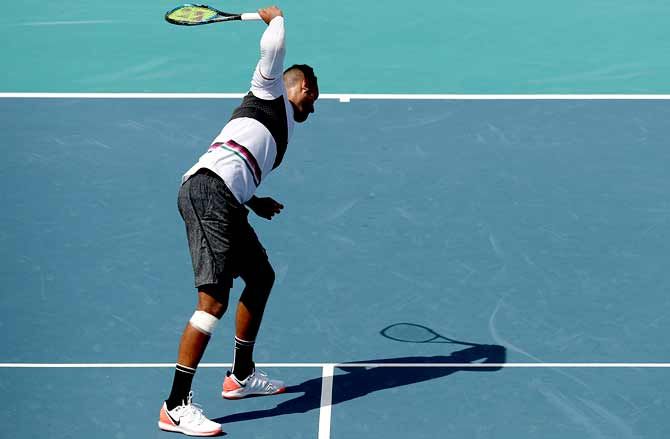
With two completed matches on clay, a petulant tournament default in Rome and character assassinations of some of the game's leading players, Nick Kyrgios's French Open build-up has been more or less normal by his unorthodox standards.
It may be a little frosty in the locker room Roland Garros after the Australian described 11-times champion Rafa Nadal as a sore loser and Novak Djokovic as obsessed with being liked in an explosive podcast interview last week.
The Parisian crowd may also be a little scornful after he said the French Open "absolutely sucks" compared to Wimbledon in a video he shot himself and posted on social media.
By his own admission, Kyrgios has virtually no chance of winning the tournament on a surface he "hates", with the odds on him taking out any of the other three Grand Slams not significantly higher.
And yet, few players will be that keen to see his name bracketed with theirs in the draw, for all the likelihood the lanky world number 36 will spontaneously combust mid-match and ease their passage into the next round.
Kyrgios might never have been past the quarter-finals of a Grand Slam, but he has shown he has the tools to topple any one of the titans of the game.
The 24-year-old boasts a 2-0 record over Djokovic, is 3-3 in his sometimes heated rivalry with Nadal and beat Roger Federer on clay in their first match in 2015.
In one sparkling week in Acapulco in March, Kyrgios downed Nadal, Stan Wawrinka, John Isner and Alexander Zverev to claim the Mexican Open title, all while partying every night at the coastal resort.
"I'm taking the piss out of the sport," he said in the "No Challenges Remaining" podcast.
"I'm lucky to be able to practise for, like, 45 minutes without something going wrong."
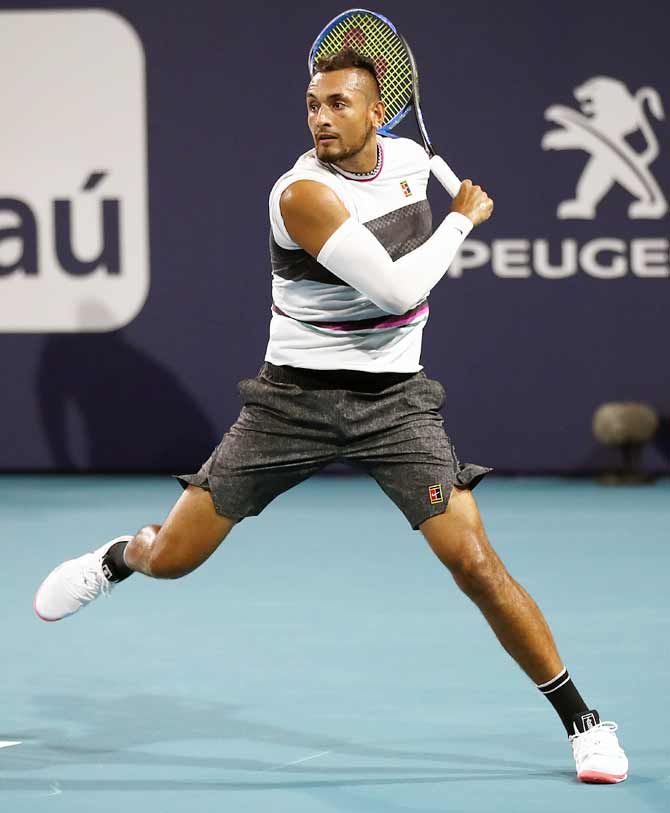
For all his boasts of being "a bit of a genius" on court, Kyrgios's fitness is dire compared to the tour's hard workers and his mental game has all the fortitude of puff pastry.
His lack of commitment means regular losses to honest tour battlers, like German world number 49 Jan-Lennard Struff who weeks ago dumped him from the first round in Madrid after Kyrgios turned up with a backpack and only one spare racket.
World number 63 Casper Ruud was dragged into the spotlight at the Italian Open last week when Kyrgios threw a chair on the court and stormed off after the unheralded Norwegian had broken him early in the deciding third set.
Goodwill has dwindled to a low ebb at home in Australia, where one TV chat show panellist described him last week as a "brat" who needs a "slap".
His casual attitude toward the game is seen as only a front, to hide the fear of what failure would mean if he buckled down and tried his hardest.
It's a view that holds some currency with Kyrgios -- but not one he tends to dwell on for too long.
"I don't like waking up every day and (reading) 'this guy's a waste of talent'. There's a limit to this stuff that I can take," he said in the podcast.
"Deep down I've had conversations with myself, like, 'is it a front?' But winning a Grand Slam .... winning tennis matches for me, they don't make me happy."
Despite that, Kyrgios figures he will keep playing for at least another four or five years, adding to the $7.24 million he has already won in prizemoney -- less the regular deductions for code of conduct breaches.
The trick-shots, underarm serves and tirades at spectators are all part of the theatre, and the 'what will he do next?' lure puts bums on seats, in much the same way John Daly still draws a crowd in golf.
Yet Daly, for all his faults and battles with addiction, did actually win two major titles.
Kyrgios has yet to win anything of significance but is convinced he could -- if only he had the work-rate.
"I think that's a talent in itself just to show up every day and be the best you can be," he said.
"If I had that, Jesus, I'd probably have a couple of Grand Slams already."


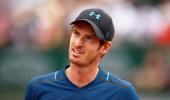
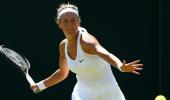
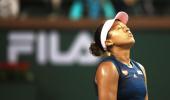









 © 2025
© 2025